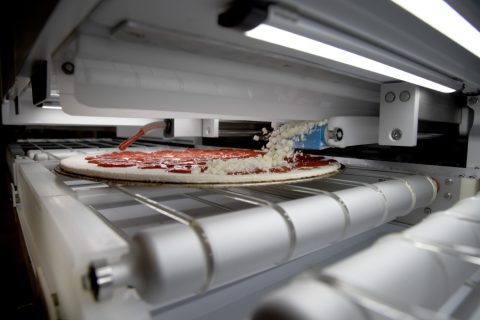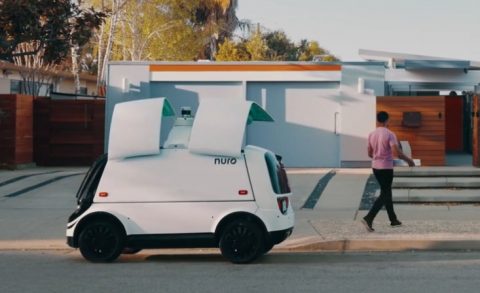Last week, we talked about the (many) challenges of the food delivery ecosystem. They can be summed in one question “how to be profitable?”. These services spend money on three items:
- developing their app, marketing and services.
- the commission to give back to restaurant owners
- the cost of delivery
It is hard to see how the first item can be reduced. It may be split more evenly as they grow or enter new markets, but it is hard to see how to reduce it. However, the two other ones could be well reduced by greater integration and robotics. That’s why it is no surprise to see many deals in cooking robots and autonomous delivery linked to food delivery startups. Here are a few recent examples that illustrate this trend in the cooking robot industry:
- Picnic, the much-talked-about pizza robot, recently said that it is now available for order. It is entirely modulable (you can add modules to widen the variety of pizzas it can make) and enables you to make up to 100 pizzas per hour. The robot will cost will start at $3,500 a month. It makes perfect sense for a cloud kitchen to have such a robot if it is both predictable and reliable. It could even make more sense in the kitchens of restaurants (which have an otherwise completely different menu and would operate this pizza robot as a virtual brand) that have some spare space and are ideally located in city centres.
- Piestro, another automated pizza robot, this time in a kiosk, has made a deal that could be as big as 3,600 units with “800 degrees”, a pizza chain.
- Sweetgreen, a growing chain of salad bars in the US, announced the acquisition of Spyce two weeks ago. Spyce is a robotic restaurant (with almost $30M raised). As Spyce technology is quite advanced and well suited for salads, it could be deployed at scale in the 120 locations of Sweetgreen.
- Chowbotics, a salad-making robot startup, was acquired earlier this year by DoorDash, one of the US leaders in restaurant delivery.

The autonomous delivery space is also quite active with:
- investments, such as the $36M raised by Coco, a startup working on small teleoperated delivery robots
- experiments such as the those made by Manna in Ireland which tend to prove the efficiency of drones over human delivery
- scaling to large operations: Nuro, the leader of this space, is now building a factory for its autonomous delivery cars.








